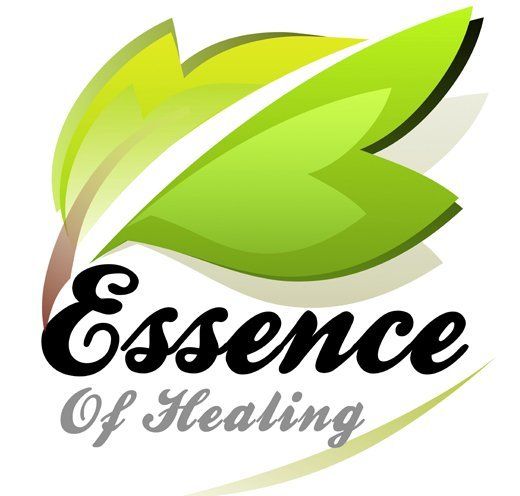Massage & Aromatherapy | FAQs
Aromatherapy – What is it?
Aroma means ‘scent’ or fragrance. Therapy means ‘treatment’. Aromatherapy literally translated as a treatment that has a therapeutic effect as a result of their scent. Aromatherapy is the use of essential oils from plants in holistic treatment to improve physical and emotional well-being. The oils are used for treating medical and non-medical conditions. Although a relatively new therapy, plants have been used for health benefits for centuries.
Aromatherapy can be summarised as:
The only treatment that combines remedies with hands on therapy and body work.
Most effective when used as a preventative therapy rather than curative.
Holistic treatment, i.e., one that takes into account the whole body and lifestyle of a person and aims to treat the root of the problem and not just the symptom.
A therapy that treats the mind and emotions as well as the physical body.
Essential Oils – What are they?
An essential oil is a substance extracted from various botanical sources such as fruits, plants, herbs, tree barks and roots. All plant sources used for aromatherapy are known to have beneficial healing properties. The extract is 70 times more concentrated than what is originally found in plant form. These volatile substances are found in many parts of the plants. Orange, for e.g., is taken from the peel, neroli from the orange blossoms, eucalyptus found in the leaves of the trees.
What are the properties of essential oils?
Analgesic, antibiotic, antifungal, antiseptic, antiviral, aphrodisiac, diuretic, expectorant, laxative, sedative, tonic, stimulant – to name but a few.
Natural doesn’t mean ineffective, for e.g, tea tree oil is antiseptic, antibiotic, antifungal and antiviral. It is 4 times stronger than most household disinfectant, and yet, it is still kind to the skin.
What are the benefits?
One of the truly remarkable things about the oils is their ability to alter the way a person feels whilst treating a physical complaint. Many client will say that the day after the aromatherapy session, they feel in a particular good mood or they feel uplifted. This is because the benefits of the oils can be experienced on many levels.
- physical complaints can be treated., eg., stomach upsets, headache, bronchitis, sprains, backaches, cellulite.
- Emotional moods lifted, depression, grief, resentment.
- Mental states, fatigue, lack of concentration, flagging memory.
For every complaint or disorder, there is an oil that can assist in alleviating it.
How do the essential oils work?
The most direct way is by inhaling an essential oil. Each active ingredient, or chemical, in an essential oil has molecules of a specific shape. These find their matching ‘jigsaw piece’ in the membrane of the olfactory or smell system. When the matching ‘jigsaw pieces’ fit perfectly a gateway opens for the chemical to be transmitted to the part of the brain called the limbic system. This area is concerned with emotion, attention, memory and learning. This limbic systems responds to this chemical message by releasing its own messages – its reply. It may send messages to uplift, calm down, balance the emotions or even produce more white blood cells – the cells that are needed to fight off infection.
Synthetic drugs are developed to fight only one type of organism on behalf of our body. For this reason, we can become dependent on a drug and it is very easy for the organisms to quickly evolve different strains for every drug we invent. Essential oils, on the other hand, stimulate and support the body to carry out the work itself. This actually serves to strengthen the immune system. Essential oils restore balance and are sensitive to the body chemistry. They work with the body.
Once their job is done, essential oils will leave the body through the pores of the skin, by exhalation, or like many waste products, are processed by the kidneys. With aromatherapy there is no other way to work but holistically – you cannot prevent the emotional effect of an oil working even though it was chosen for its physical properties. This is where trained practitioners of aromatherapy are important. They have learnt how to combine oils in such a way that they care for all aspects of a person. Essential oils are so beautifully non-invasive, they will work in chemical harmony with the body without altering cellular heat or electromagnetism.
Administering is such a pleasure, whether it is through massage, bathing or inhalation they are extremely efficient in the way the body absorbs them, as opposed to drugs that are taken orally – probably the least effective method of absorption.
Taking care
Oils are highly concentrated chemicals, with complex structures. They are powerful so use them with care. If used too frequently or at the wrong time, they can do more harm than good.
Always dilute the oils. They should never be used for massage in a concentrated form, as they will burn or sting the skin. Dilute them in a base oil e.g., grapeseed or sweet almond. The only exceptions are lavender and tea tree which can be applied neat to burns and cuts.
Do not take orally as the wrong oil or wrong amount can cause a severe reaction.
Be careful during pregnancy. Essential oils should not be used during the first 3 months of pregnancy. It is a good rule not to use any essential oils in pregnancy unless you are under the care of an experienced aromatherapist.
Oils can be used on people with sensitive skin but in extremely reduced dosages, about 1%.
For children or elderly, reduced treatments to 1% in a dilution. Store oils away from children and pets. If in doubt, speak with a fully trained aromatherapist.
Phototoxic oils – do not use at least 24 hrs before spending time in the sun or on a sunbed: Angelica, bergamot, citronella, Lemon, lime, mandarin.
Do not use these oils with epilepsy: Fennel, hyssop, rosemary.
If taking homeopathic medication, check with your homeopath before using these oils as some of them can negate the effect of homeopathy.
How do I store the oils ?
Keep away from heat and sunlight, preferably in a cool place.
Store them in glass bottle as they are potent substances.
Keep them labelled.
Replace the tops as the oils are affected by oxygen, light, heat and moisture.
Once the oils have been diluted, they will only last a few months. Storing in a fridge will help to last longer.
Treatments
How do I find a good practitioner?
From AOC – aromatherapists organisation council.
AOC was set up amongst other things to provide appropriate standards of professional practice and conduct for their members. And act as a public watchdog. They monitor the standard of practising aromatherapists. This is to protect the reputation of practitioners as well as members of the public looking for treatment.
What actually happens in an aromatherapy session?
At the first session, the aromatherapist will start by filling in a questionnaire to find out if there’s anything in your medical history that they should be aware of; any allergies, conditions, past problems or sensitivity. This helps them to build up a picture of your background and also alerts them to any contraindications, if any, for example, if you had diabetes or epilepsy, or were pregnant, precautions would be taken in choosing the oils.
After the practitioner has mixed the blend of oils for you, she will apply it to your body through massage. Don’t feel that you have to make conversation. It is not a social occasion and most people usually get most out of it if they just let go to the experience and drift off into an hour of scented relaxation.
How long does a session last ?
Most aromatherapy sessions last between one and one and a half hours, although some practitioners will see clients for just half an hour. If you can arrange for a full hour it is more beneficial, as many people can take up to 20 minutes before they fully relax and for the treatment to take full effect.


